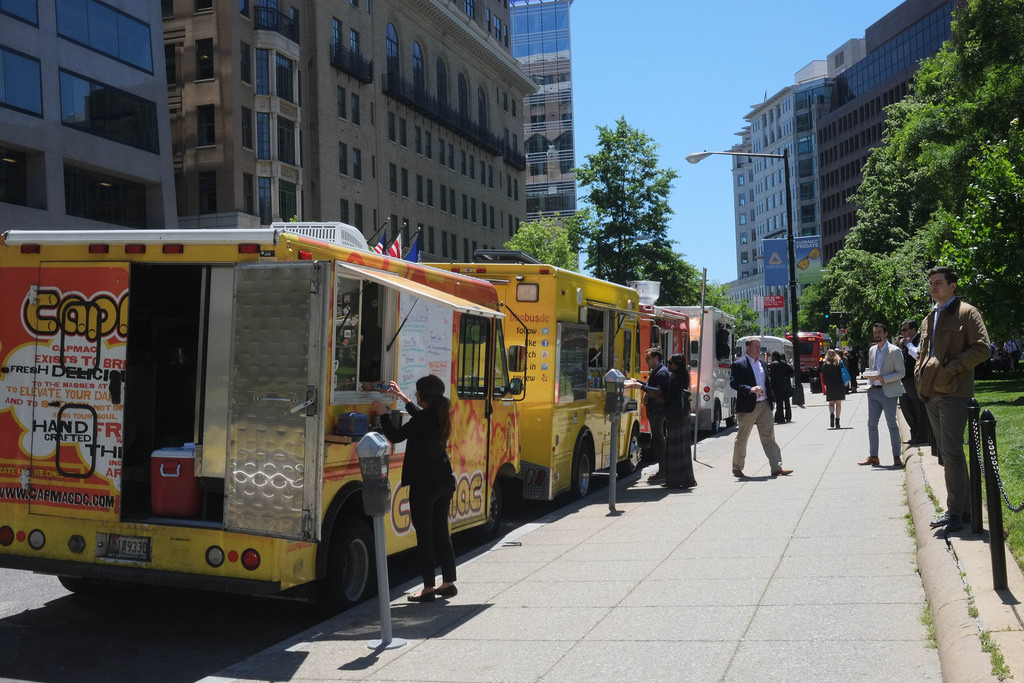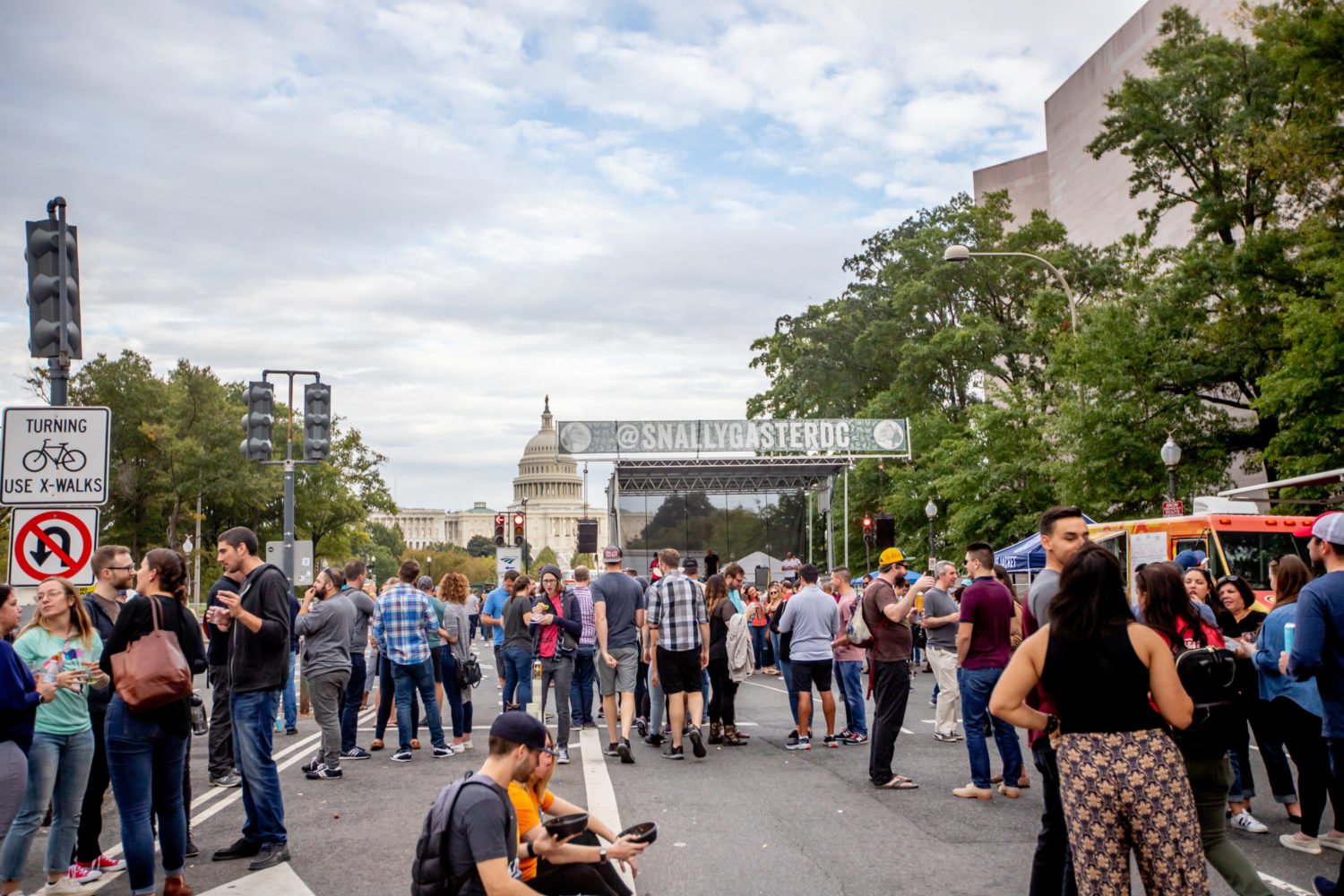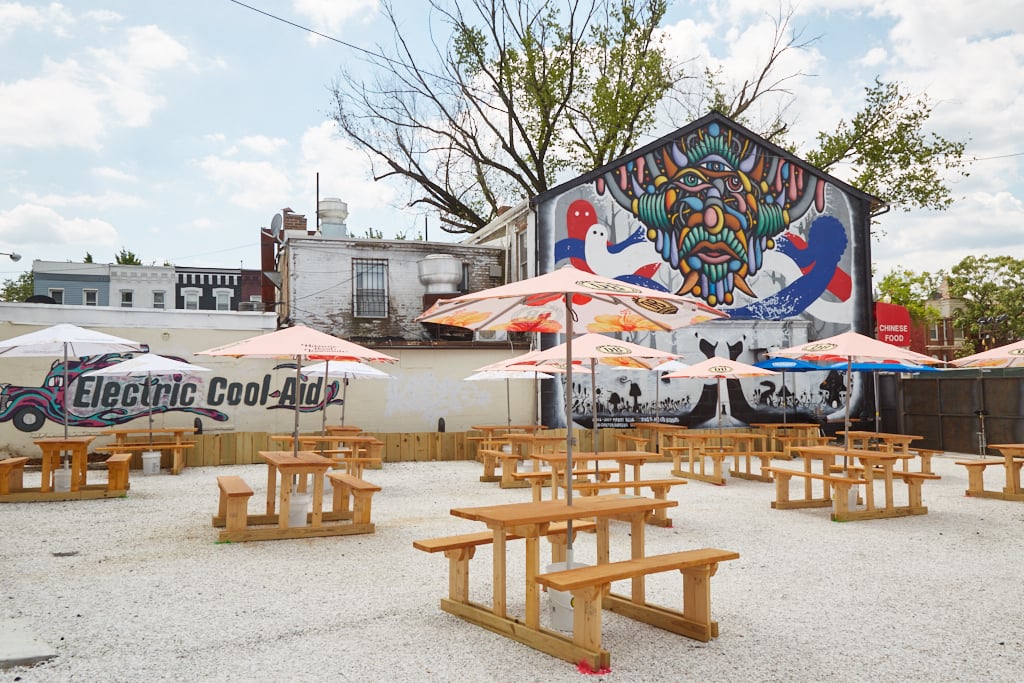January 20, 2009 was a day of firsts in the District. As Barack Obama stepped into his inaugural term as president, the first modern food truck in DC began its journey. While the Fojol Brothers truck has since shuttered, it pioneered a new wave of mobile vending. The number of food trucks in DC now climbs into the hundreds, with many trucks growing into brick-and-mortar restaurants. Ten years later, food trucks have redefined how hungry Washingtonians lunch.
Che Ruddell-Tabisola started BBQ Bus in 2011 with his husband and business partner, Tadd Ruddell-Tabisola. What started as a passion project and supplement to their day jobs turned into a fully fledged smokehouse, catering, and food truck business. Ruddell-Tabisola served as the executive director for the DMV Food Truck Association from 2012 to 2016, uniting vendors to advocate for their roaming businesses. In 2013, the collective was instrumental in creating new regulations for mobile vending. We asked Ruddell-Tabisola about the past decade of DC street food.
How have the food trucks in DC created community?
I’ve always said myself that food should be two things. It should nourish and it should gather. And the trucks did that especially well by bringing food to people when and where they wanted. You look ten years ago, you didn’t want to walk through Franklin Square Monday through Friday. It was a completely different park—not a hundred-percent safe. The trucks have brought the park to life. It’s being used. We taught a city the joy of coming to lunch and standing in line in a park, having lunch outdoors.
What are some of the food truck legislative victories you are most proud of?
I’d probably say what we accomplished in DC in 2013 was pretty tremendous but at that time, we were just operating through so much uncertainty. People forget this, but a long time ago, police would board food trucks and ask to see your paperwork. In business, you want to have a certain level of certainty and comfort and predictability, and we just did not have that before 2013.
How have food trucks changed the DC dining scene?
I’ve always ‘parked’ the trucks, so to speak, as part of the larger food and beverage explosion and the food and beverage entrepreneurship boom in DC, more than I have as a truck or a mobile vending thing. Before there was an &pizza on every corner, DC Slices was seemingly on every corner. Before the rise of the food halls, we had the roaming food courts at Franklin and Farragut Square. Before there was Thip Khao, there was Sang on Wheels. Before we had all the restaurants in Navy Yard and now the Wharf, we had truckers.
What do you think is going to be the lasting legacy of food trucks on the DC dining scene?
We don’t spend a lot of time thinking about keeping the cost of business affordable. And the truck still provides that opportunity. You have an idea and you’re willing to work hard, you can go out and you can pursue it. And that’s important. Tadd and I own our truck outright. If we have to move, we have a sense of financial security. If you look at the oldest businesses in DC—Ben’s Chili Bowl, Lee’s Flower on U Street, there’s a few others—they’re all different industries but what they have in common is they own their buildings. That’s sort of the key to that security that you can weather recessions, etc. We own our truck. And a lot of the guys out there, we were able to do that and know we can provide for our families, we can provide for our employees’ families. That’s important. That’s why I continue. It’s important to make sure mobile vending has the opportunity to thrive.
What does 10 years of DC food trucks mean to you?
It has given me so much joy. Especially when I was working for the Food Truck Association, to be able to advocate and really be able to represent some of these guys. I’m still a fanboy of all this stuff. I remember the first time I met the guys from Red Hook and literally everything got into slow motion. I couldn’t believe he was going to order food off my truck and I was freaking out. And now I talk to owner Doug [Povich] once a week. It’s been a dream come true I never knew I dreamed.
This interview has been condensed and edited for clarity.


















